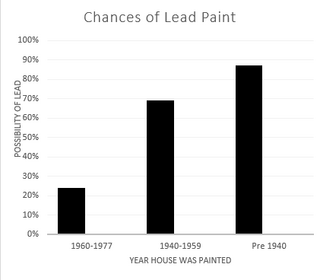Related Research Articles

Youth activism is the participation in community organizing for social change by persons between the ages of 15–24. Youth activism has led to a shift in political participation and activism. A notable shift within youth activism is the rise of “Alter-Activism” resulting in an emphasis on lived experiences and connectivity amongst young activists. The young activists have taken lead roles in public protest and advocacy around many issues like climate change, abortion rights and gun violence. Different from past protest or advocacy, technology has become the backbone to many of these modern youth movements. It has been shown in multiple studies that internet use along with seeking information online is shown to have positive impacts on political engagement. Popular applications like Twitter, Instagram and YouTube have become the newest tools for young activists in the 21st century. Technology and the use of digital media has changed the way youth participate in activism globally, and youth are more active in media than older generations.

Richard Dale Snyder is an American business executive, venture capitalist, attorney, accountant, and politician who served as the 48th governor of Michigan from 2011 to 2019.

The Lead and Copper Rule (LCR) is a United States federal regulation that limits the concentration of lead and copper allowed in public drinking water at the consumer's tap, as well as limiting the permissible amount of pipe corrosion occurring due to the water itself. The U.S. Environmental Protection Agency (EPA) first issued the rule in 1991 pursuant to the Safe Drinking Water Act (SDWA). The EPA promulgated the regulations following studies that concluded that copper and lead have an adverse effect on individuals. The LCR limits the levels of these metals in water through improving water treatment centers, determining copper and lead levels for customers who use lead plumbing parts, and eliminating the water source as a source of lead and copper. If the lead and copper levels exceed the "action levels", water suppliers are required to educate their consumers on how to reduce exposure to lead. In a 2005 report EPA stated that the LCR requirements had been effective in 96 percent of systems serving at least 3,300 people.
The Michigan Department of Environment, Great Lakes, and Energy (EGLE), formerly Michigan Department of Environmental Quality, is a principal department of the U.S. state of Michigan for environmental issues. The department was created in 1995.
Per- and polyfluoroalkyl substances are a group of synthetic organofluorine chemical compounds that have multiple fluorine atoms attached to an alkyl chain. The PubChem database lists more than 6 million unique compounds in this group. PFASs started being used in the mid-20th century to make fluoropolymer coatings and products that resist heat, oil, stains, grease, and water. They are used in a variety of products including waterproof clothing, furniture, adhesives, food packaging, heat-resistant non-stick cooking surfaces, and the insulation of electrical wire. They have played a key economic role for companies such as DuPont, 3M, and W. L. Gore & Associates that use them to produce widely known materials such as Teflon or Gore-Tex.
Darnell Earley is an American public administrator and municipal manager. Formerly the city manager of Saginaw, Michigan and emergency manager of Flint, Michigan, Earley served as temporary mayor of Flint after the recall of Woodrow Stanley. Earley was appointed emergency manager of the Detroit Public Schools system in January 2015. He resigned that position in February 2016. In January 2021 he was indicted on felony charges regarding the Flint water crisis.

Marc Edwards is a civil engineering/environmental engineer and the Charles Edward Via Professor of Civil and Environmental Engineering at Virginia Tech. An expert on water treatment and corrosion, Edwards's research on elevated lead levels in Washington, DC's municipal water supply gained national attention, changed the city's recommendations on water use in homes with lead service pipes, and caused the Centers for Disease Control and Prevention to admit to publishing a report so rife with errors that a congressional investigation called it "scientifically indefensible." He is considered one of the world's leading experts in water corrosion in home plumbing, and a nationally recognized expert on copper corrosion. He is also one of the whistleblowers in the Flint water crisis, along with Dr. Mona Hanna-Attisha.
James Ananich is an American politician from the State of Michigan. He was a Democratic Party member of the Michigan State Senate from 2013 to 2023, representing the 27th district, which is located in Genesee County and includes the cities Burton, Clio, Flint, Mount Morris and Swartz Creek and the townships of Flint Township, Forest, Genesee, Mount Morris, Richfield, Thetford and Vienna. He was the minority leader from 2015 to 2023.

Samples of potable water in Hong Kong were found to contain excessive levels of heavy metals including lead, nickel and cadmium in 2015. Such discoveries of contamination caused widespread crisis within the city.

The Flint water crisis is a public health crisis that started in 2014 after the drinking water for the city of Flint, Michigan was contaminated with lead and possibly Legionella bacteria. In April 2014, during a financial crisis, state-appointed emergency manager Darnell Earley changed Flint's water source from the Detroit Water and Sewerage Department to the Flint River. Residents complained about the taste, smell, and appearance of the water. Officials failed to apply corrosion inhibitors to the water, which resulted in lead from aging pipes leaching into the water supply, exposing around 100,000 residents to elevated lead levels. A pair of scientific studies confirmed that lead contamination was present in the water supply. The city switched back to the Detroit water system on October 16, 2015. It later signed a 30-year contract with the new Great Lakes Water Authority (GLWA) on November 22, 2017.

Karen Weaver is an American psychologist and politician who was the mayor of Flint, Michigan, from 2015 to 2019. She was the first female mayor of the city and the fifth African-American to hold the office.

#JusticeForFlint was a charity event held on February 28, 2016, addressing the ongoing Flint water crisis in the U.S. state of Michigan. With the victims of the lead poisoning being predominantly black, the political scandal has been regarded as an example of racial inequalities in the U.S., and the charity event has been associated with the Black Lives Matter campaign.
Lutgarde Raskin is a Belgian-American scientist and Professor of Environmental Engineering. She is best known for her studies of microbial ecology in engineered water systems for sewage treatment and drinking water production.

Lead abatement is an activity to reduce levels of lead, particularly in the home environment, generally to permanently eliminate lead-based paint hazards, in order to reduce or eliminate incidents of lead poisoning.

Mona Hanna-Attisha is a pediatrician, professor, and public health advocate whose research exposed the Flint water crisis. She is the author of the 2018 book What the Eyes Don't See, which The New York Times named as one of the 100 most notable books of the year.

The Pittsburgh water crisis arose from a substantial increase in the lead concentration of the city's water supply. Although catalyzed by the hiring of cost-cutting water consultancy Veolia in 2012, and an unauthorized change of anti-erosion chemicals in 2014, this spike in lead concentration has roots in decades of lead pipe erosion. Since the Pittsburgh Water and Sewer Authority (PWSA) first failed its water quality test in 2016, it has exceeded the federal lead threshold of 15 ppb by almost 1.5 times. This level of lead contamination poses serious health risks to residents, particularly children and pregnant women. In an attempt to remedy the situation, the PWSA has begun removing lead pipes from the city's water lines and has decided to introduce orthophosphate to the water supply.

Dana Michelle Nessel is an American politician and lawyer serving as the 54th Attorney General of Michigan since January 2019. She is a member of the Democratic Party.

Gitanjali Rao is an American inventor, author, social activist, and a STEM student and advocate.

Amariyanna "Mari" Copeny, also known as Little Miss Flint, is an African-American youth activist from Flint, Michigan. She is best known for raising awareness about the Flint water crisis and for fundraising to support underprivileged children in her community and across the country.

A lead service line is a pipe made of lead which is used in potable water distribution to connect a water main to a user's premises.
References
- 1 2 3 Brueck, Hilary (24 February 2016). "A mother in Flint, Michigan collected more than 800 neighborhood water samples to help uncover the city's lead crisis". nordic.businessinsider.com. Retrieved 26 April 2019.
- 1 2 3 4 5 Persio, Sofia Lotto (2018-04-23). "Flint Water Activist Wins Top Environmental Prize". Newsweek. Retrieved 2023-09-01.
- 1 2 "A Flint, dans le Michigan, l'eau empoisonnée des pauvres". Le Monde.fr (in French). 2023-08-19. Retrieved 2023-09-01.
- 1 2 3 Brueck, Hilary. "A mother in Flint, Michigan collected more than 800 neighborhood water samples to help uncover the city's lead crisis". Business Insider. Retrieved 2023-09-01.
- 1 2 ""Mi casa fue la zona cero": la madre que luchó por desvelar la contaminación por plomo en Flint". BBC News Mundo (in Spanish). 2016-05-03. Retrieved 2023-09-05.
- ↑ Former EM removed from witness list for Congressional hearing on Flint water The Flint Journal via MLive.com, February 3, 2016
- ↑ "2016 PEN/Toni and James C. Goodale Freedom of Expression Courage Award: Lee-Anne Walters and Dr. Mona Hanna-Attisha". pen.org. 3 March 2016. Retrieved 26 April 2019.
- ↑ "PEN America to Honor Flint Mother and Local Doctor for Speaking Out to Expose Poisoned Water Supply". pen.org. 3 March 2016. Retrieved 26 April 2019.
- ↑ Saraiya, Sonia (27 October 2017). "TV Review: Lifetime's 'Flint' Starring Queen Latifah". Variety. Retrieved 26 April 2019.
- ↑ "Flint water activist LeeAnne Walters wins environmental prize". eu.freep.com. Associated Press. 23 April 2018. Retrieved 26 April 2019.
- ↑ "LeeAnne Walter". goldmanprize.org. Retrieved 26 April 2019.